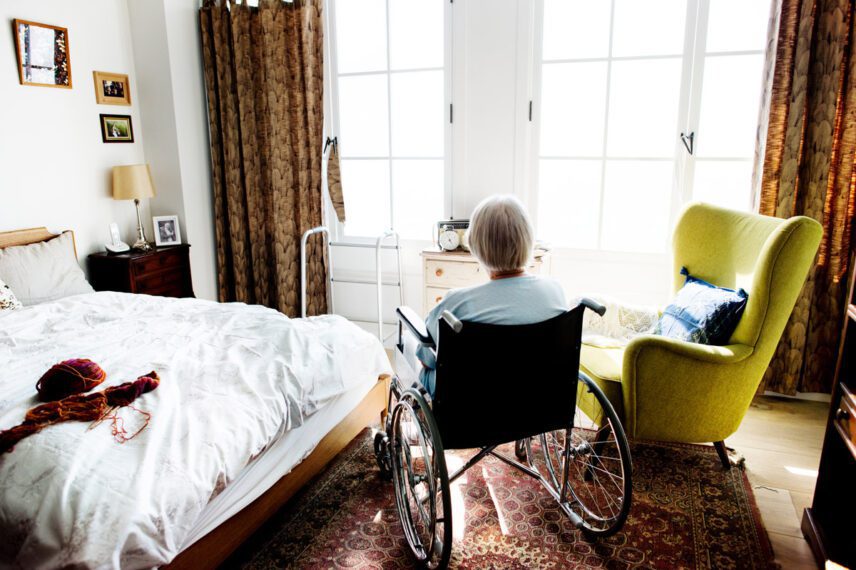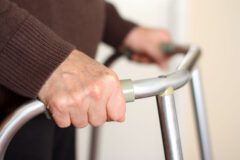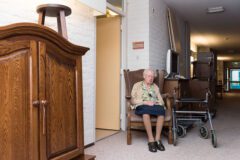10 Signs of Abuse in a Nursing Home

Choosing to place a loved one in a nursing home is never an easy decision. You may often wonder how you can be certain that your loved one is well taken care of. However, there are a few warning signs and red flags to look out for regarding potential negligence or abuse.
Warning Signs of Negligence or Abuse
If you observe any of the following symptoms below, it may be time to choose a different facility or pursue legal action in the worst-case scenario.
1. An Unclean Facility
If a facility has a strange odor, appears unclean, or lacks basic sanitation procedures, it’s a clear warning sign that the employees do not value cleanliness. Considering how vulnerable older populations are to catching viruses and infections, cleanliness should be a top concern for nursing home patients.
2. High Staff Turnover Rates
High turnover rates typically indicate a problem with management and unhappiness among employees. It can also mean that nursing home patients aren’t receiving consistent care. When turnover rates are high, it is likely that the facility is short-staffed and hiring underqualified or temp workers.
3. Poor Food Services
Nursing home neglect can come in many shapes and sizes, including improper nutrition. It’s critical to ensure that the nursing home you choose doesn’t hesitate to hand you a meal calendar or answer questions about how they create and serve meals. Additionally, while you shouldn’t expect residents to be served a 5-star meal, it is important to look for signs of malnutrition, such as underweight residents or skipped meals.
4. Lack of Daily Activities for Residents
While no one should force nursing home patients to participate in daily activities, at the very least, they should still be offered as a way for residents to socialize and enrich their lives. If you notice multiple residents still asleep in the late morning because activities are completely lacking, that’s likely a big red flag. Patients should be offered weekly scheduled activities such as games, church sermons, outings, arts and crafts, and more.
5. Previous Complaints
Always do your research before committing to a single nursing home facility. This includes reading Yelp and Google reviews to get valuable insight into potential complaints. You can also access the annual state survey, which contains complaint investigations into nursing homes across the United States.
6. An Unfriendly Staff
A good staff should have friendly, caring, and meaningful interactions with residents and visitors. If you notice staff having poor or little to no interactions with their residents, it could be an early warning sign that something is wrong. Additionally, if the staff acts rude, cold, or condescending to you or other visitors, it could be further proof that it’s time to look into a new facility.
7. No Abuse Prevention Policies
Inquire about your nursing home’s abuse prevention policies. Established facilities should have a pre-existing process for reporting complaints of abuse or neglect through the proper channels.
8. Poor Visitation Hours
If a facility has irregular, infrequent, or unscheduled visitation hours, it’s a sign that they are likely understaffed, poorly managed, or have something to hide. If you have consistent difficulty arranging a time to visit during normal business hours, it may be time to look into finding a new facility.
9. Unresponsive Residents
A facility that is understaffed or hiring unqualified workers may resort to overmedicating its residents as a way to cope with mismanagement or its inability to tend to its residents. If residents are constantly sedated, it’s a giant red flag.
10. Previous COVID-19 Outbreaks
While not every COVID-19 outbreak is a sign of poor COVID protocols, it can be an early warning sign that the staff is not taking the proper safety measures to prevent infection. Do not hesitate to inquire about past infection rates, outbreak response measures, and safety protocols. If a facility has had multiple outbreaks and inadequate policies in place or if they refuse to answer your questions, then it’s a clear warning sign they are mishandling safety procedures.
What to Do If You or a Loved One Has Been a Victim of Nursing Home Abuse in South Carolina
If you or a loved one is a victim of nursing home abuse, there are specific actions you can take action to prevent it from happening to anyone else. First and foremost, report the abuse to local authorities, including the police and Adult Protective Services.
Conclusion
Nursing home abuse can happen anywhere, so it’s crucial to keep an eye on any early warning signs of negligence or improper care before it’s too late.






